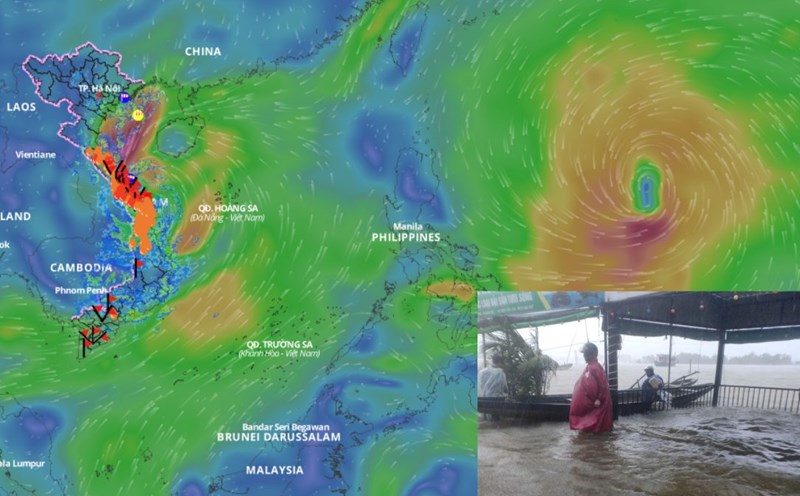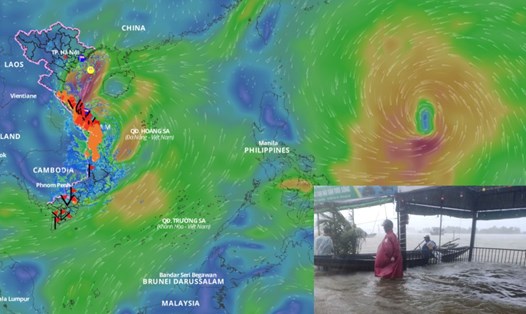Since the end of October, the frequency of cold air waves has increased. However, in terms of intensity, there has not been any cold air wave that has had a strong impact on the weather in the North.
According to Mr. Vu Anh Tuan - Deputy Head of Weather Forecast Department, National Center for Hydro-Meteorological Forecasting, from the end of November 2024, cold air will increase in both frequency and intensity. From December 2024 to February 2025, cold air will be active, potentially causing widespread cold spells in the northern provinces.
"December to February is usually also the time when cold air activity is strongest and occurs most in winter," said Mr. Tuan.
According to the Deputy Head of the Weather Forecast Department, the first severe cold spell of this winter is likely to fall in the second half of December 2024.
Mr. Nguyen Duc Hoa - Deputy Head of Climate Forecasting Department, National Center for Hydro-Meteorological Forecasting said that in January, the Northern Delta usually has an average temperature of about 16.5 - 17 degrees Celsius. With such a low average temperature, when strong cold air arrives, it can cause a sharp drop in temperature, causing severe cold. Below 15 degrees Celsius, severe cold will occur, below 13 degrees Celsius, severe cold will occur.
The lowest temperature in the plains can drop to 7 - 10 degrees Celsius, in mountainous areas 0 - 4 degrees Celsius, and in high mountainous areas it can be below 0 degrees Celsius.
It is necessary to guard against the possibility of dangerous weather phenomena such as frost, ice, and snow in the mountainous provinces of the Northern region during the winter months.











